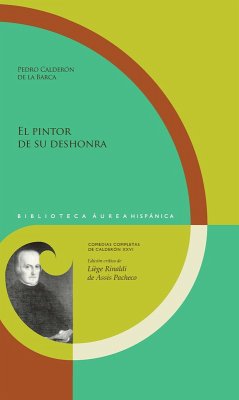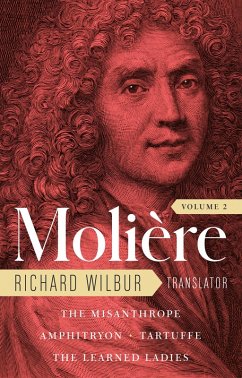
The Cid (eBook, ePUB)
Versandkostenfrei!
Sofort per Download lieferbar
1,99 €
inkl. MwSt.
Weitere Ausgaben:

PAYBACK Punkte
0 °P sammeln!
In "The Cid," Pierre Corneille masterfully crafts a tragic tale that explores themes of honor, love, and vengeance against the backdrop of 11th-century Spain. This classic play, written in the style of French neoclassicism, intricately balances the dramatic tension of personal conflicts with rigid societal expectations. Corneille's innovative use of elevated language, coupled with profound character development, enables readers to engage deeply with the moral dilemmas faced by its central characters - particularly the young nobleman Rodrigo and his beloved Chimène - as they navigate their int...
In "The Cid," Pierre Corneille masterfully crafts a tragic tale that explores themes of honor, love, and vengeance against the backdrop of 11th-century Spain. This classic play, written in the style of French neoclassicism, intricately balances the dramatic tension of personal conflicts with rigid societal expectations. Corneille's innovative use of elevated language, coupled with profound character development, enables readers to engage deeply with the moral dilemmas faced by its central characters - particularly the young nobleman Rodrigo and his beloved Chimène - as they navigate their intertwined fates amidst familial loyalty and societal honor. Pierre Corneille, a pioneering figure of French literature, emerged during a period characterized by shifting cultural values and the rise of classical tragedy. His own conflation of personal experience and philosophical inquiry imbued his works with a sense of authentic emotional gravitas. "The Cid," often lauded for its exploration of the heroic ideal, illustrates Corneille's deep engagement with contemporary issues of honor and identity, reflecting not only his contemporary society but also his own introspections on the human experience. Corneille's "The Cid" remains an essential read for both scholars and enthusiasts of classic literature. Its timeless exploration of love and duty continues to resonate, prompting readers to reflect on their values in an ever-evolving moral landscape. This play not only enriches one's understanding of French literature but also serves as a poignant examination of the complexities of the human condition.
Dieser Download kann aus rechtlichen Gründen nur mit Rechnungsadresse in A, B, BG, CY, CZ, D, DK, EW, E, FIN, F, GR, H, IRL, I, LT, L, LR, M, NL, PL, P, R, S, SLO, SK ausgeliefert werden.













